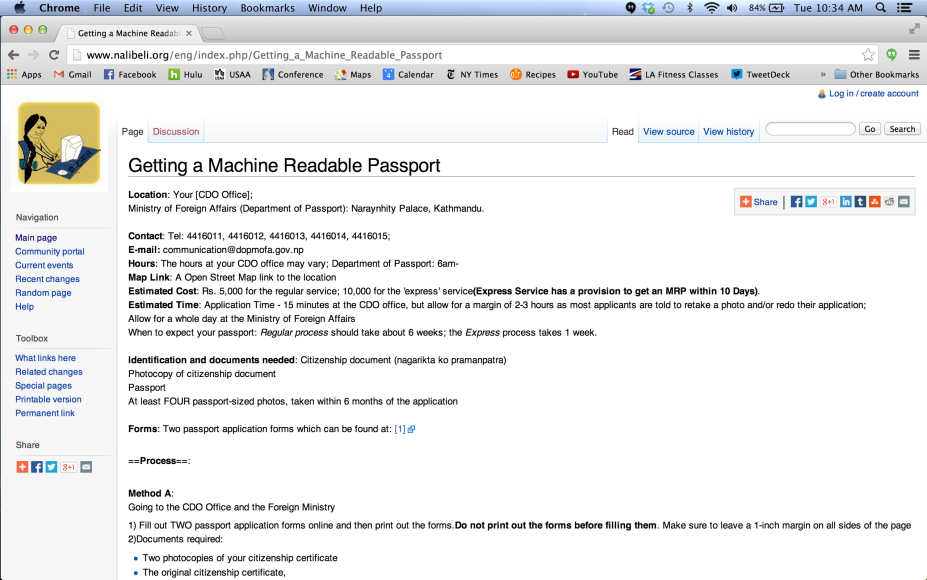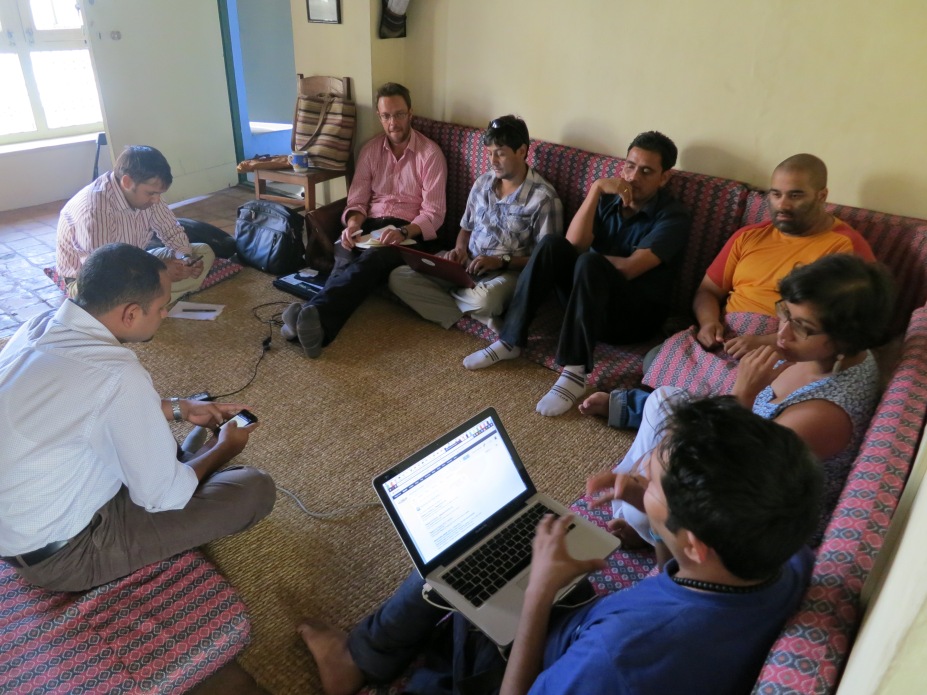Knowledge Management for Development
a global community
The Big Idea: a wiki guide to public services
By: Blair Glencorse. This post was originally published by the RSA.
The Big Idea: Nalibeli is an online platform created by Blair Glencorse FRSA and Surabhi Pudasaini that helps citizens in Nepal to navigate complicated public services, and uses crowdsourcing to give people access to the information they need.
Accessing basic services, like obtaining a new passport or renewing a driver’s license, is a difficult, complicated and messy ordeal for citizens in Nepal. There is no clear and readily available information – of the sort taken for granted in a country like the UK – to help Nepalis understand the services the government should provide. As a result, it can take numerous visits to offices and a great deal of confusion (and bribes) to navigate the administration.
That is why we’ve started a campaign through the RSA crowdfunding site to support Our Nalibeli portal. Nalibeli (in Nepali, Nalibeli is a word that gives a sense of understanding the intricate details of something) helps citizens navigate government and make more informed decisions about issues that affect their lives. With generous support from the RSA US Challenge fund and RSA Catalyst (which supported initial development, research and network-building on the ground) we are using web-based tools, like Facebook, to gather ideas on the problems that Nepalis care about. Then we are using our contacts across the country to organize, package an disburse relevant information through a wiki-tool (using MediaWiki, the free, open source wiki product that was evolved from Wikipedia).
The story so far
We’ve begun a massive outreach campaign around the country and despite our small budget, results so far have been impressive: Nalibeli has over 115,000 hits and over 400 pages of information on key services in both Nepali and English. We began with higher education and mapped information across over 60 college campuses and 38 faculties, and we’re now mapping services through District Administrative Offices (with which all Nepalis have to interact for obtaining birth certificates, marriage licenses and so on). We’ve held numerous “wiki-a-thons” at colleges in different parts of Nepal as well as numerous informal wiki-sessions to build a committed user base and demonstrate the importance of what we are doing; and we’ve built up a solid team of 5 people and an informal network of over a dozen institutions and organizations who, on a volunteer basis, give us their time and expertise.
All of this has taken just a few months. There have been challenges of course. Crowdsourcing information under difficult conditions has been harder than we thought it would be, and bridging the digital divide is proving tricky, but we are working on these problems and making fantastic progress. The wiki is fully functional and has a truly vibrant community developing around it. Now we need it go from a useful tool to the essential resource it should be for every Nepali citizen to ensure that the provision of government services is equal and fair for all.
The next stage of the project involves recruiting plenty more volunteers, scaling up the amount of information in the wiki to cover all public services, and greater outreach efforts to ensure the tool is as usable and accessible as possible. Friends from elsewhere have also indicated that Nalibeli would prove valuable in their countries – and we are excited to pilot it in other South Asian contexts and beyond. Citizens everywhere want reliable and up-to-date information on government, after all, even if the government itself is unable or unwilling to provide it.
One of Nalibeli’s regular ‘wiki-athons’ to compile information.
How you can help
We’ve had tons of interest in the project from Fellows so far. We’d love to speak to any other Fellows in the technology field, with experience in crowd-sourcing information or who may have grown projects like this across issues and countries.
We’d also welcome any support through the new RSA Kickstarter crowdfunding page. There are plenty of amazing pledge gifts up for grabs including Intercontinental Holistic Missiles (ICHMs)- collections of medicinal, cooking and other healthful herbs grown in Nepal, (all in Nepali embroidered bags!); vedic astrology charts and much more! Please help us continue to build transparent and accountable government in Nepal!
Donate !
***
note if the donate link above does not work for you, click here on donate! and at the bottom of that page click on the donate logo
***
Groups
-
KM4Dev 20 years celebrat…
13 members
-
KM4Dev Core Group
7 members
-
SA-GE - KM4Dev Francopho…
63 members
-
Agenda Knowledge for Dev…
31 members
-
KM4Dev Jobs Centre
344 members


You need to be a member of Knowledge Management for Development to add comments!
Join Knowledge Management for Development